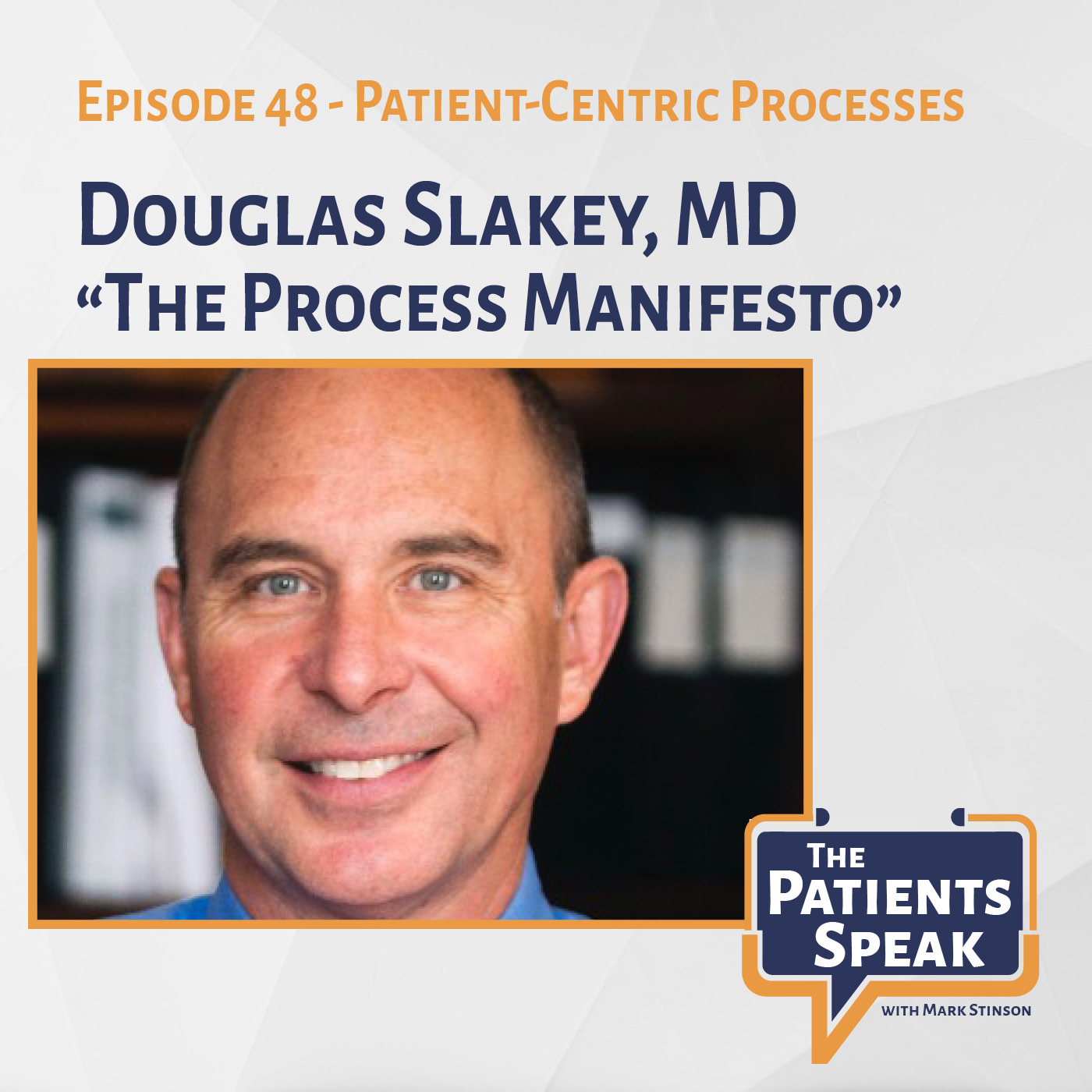Welcome to another enlightening episode of “The Patients Speak.” I’m your host, Mark Stinson, and today we’re diving deep into the intricacies of healthcare processes, focusing on patient empowerment and improved experiences. Our special guest is Dr. Doug Slakey, a renowned transplant surgeon, educator, healthcare professional, and administrator. He’s also the author of the thought-provoking book, “The Process Manifesto.”
Patient-Centered Care
Our conversation kicks off by stressing the importance of patient-centered care. Dr. Slakey emphasizes that patients should be seen not just as cases but as individuals on unique health journeys. A patient’s perspective often differs significantly from the healthcare system’s, and understanding this shift is crucial. “We have to realize that at some point in our lives, each of us is a caregiver and each of us is a patient, and it really is a continuum.”
Compassion in Healthcare
We explore the role of compassion in healthcare. Compassion, Dr. Slakey argues, is action-oriented and a foundational element that should guide interactions between patients and healthcare providers. It fosters communication, empathy, and a more human-centered approach to care. “Compassion is action-oriented. It’s about recognizing individual needs and providing care that extends beyond mere empathy.”
Empowering Patients
Dr. Slakey stresses the importance of patients actively participating in their healthcare journey. Patients should educate themselves, ask questions, and clearly articulate their expectations. Additionally, they can play a more proactive role by sharing personal context that may affect their care.
Outcome-Oriented Care
Shifting from traditional process-centric care, we delve into the importance of measuring patient outcomes. This involves evaluating whether patients are achieving their desired health goals. Outcome-based care holds the potential to realign payment models and drive improvement in healthcare processes.
Aligning Processes with Patient Expectations
Aligning healthcare processes with patient expectations is the key to success. Dr. Slakey highlights that healthcare providers should be transparent in communicating the journey, so patients can actively participate in their care and understand what’s happening at each stage.
Decentralizing Control
A vital call to action is the decentralization of control in healthcare. Placing control at the front lines, where providers directly interact with patients, enables the use of knowledge, education, compassion, and empathy to create positive change in the patient experience.
The conversation with Dr. Slakey reinforces that healthcare is a multifaceted journey and that acknowledging the patient’s voice, experiences, and expectations is pivotal. With continuous quality improvement and a patient-centric approach, we can reshape the healthcare landscape to ensure better outcomes, more compassionate care, and enhanced patient experiences.
Douglas Slakey
Dr. Douglas Slakey is an internationally recognized transplant surgeon, educator, author, healthcare professional, and administrator. Doug is currently a professor of surgery at the University of Illinois, Chicago, and the president of Process Health Consulting, a healthcare consultancy focused on enhancing and optimizing operations and process flow, emphasizing complex system management strategies that optimize patient outcomes. He is a global educator and speaker who inspires healthcare teams to provide effective, compassionate patient care.
Join us in our next episode of “The Patients Speak” as we continue to explore and advocate for the patient’s voice in healthcare. Thank you for listening.
BSB Media





